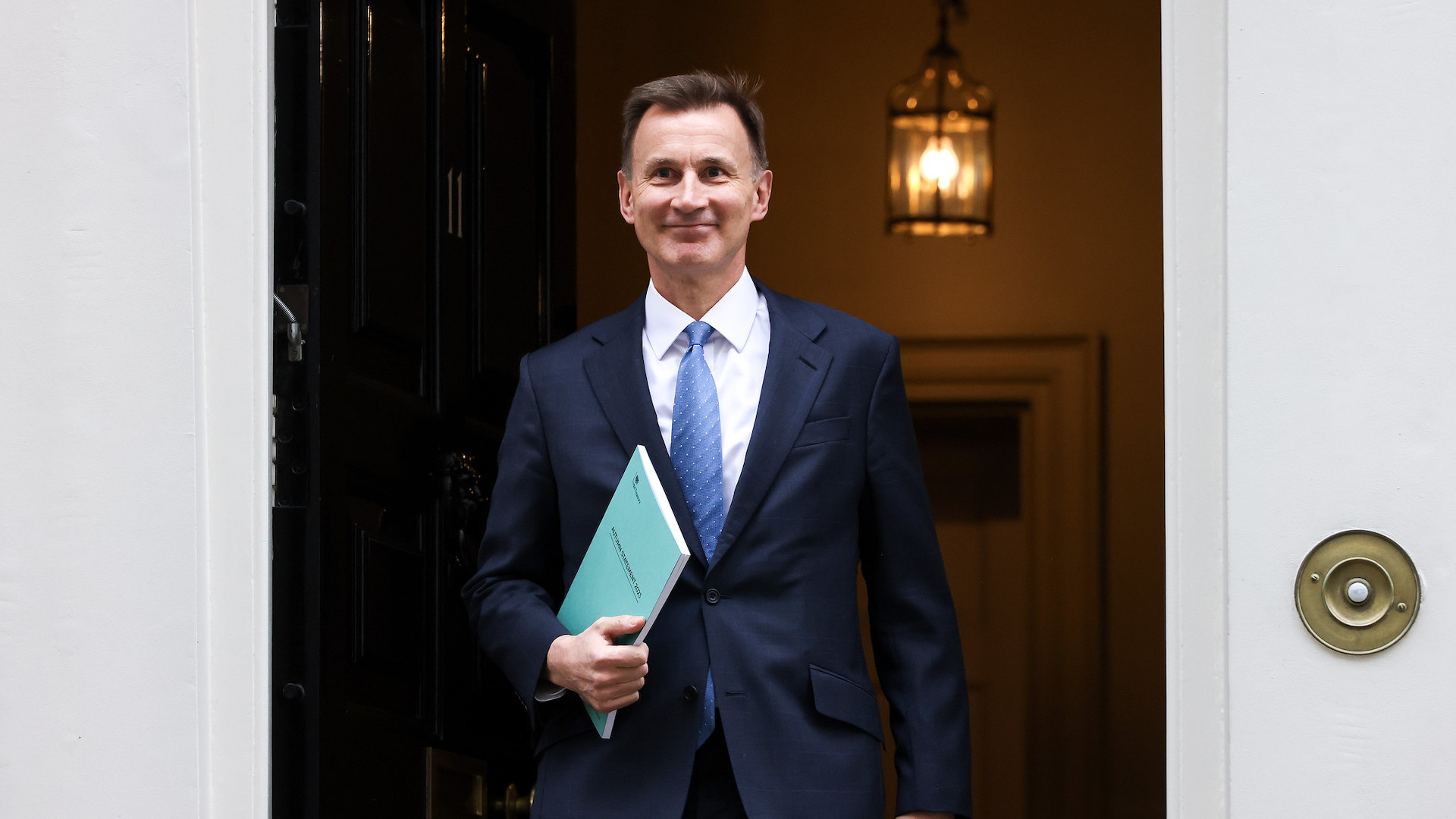Here we are, the Autumn Statement 2023 is over and done with and as usual, I’ve read and watched it all, so you don’t have to.
There’s a 120 page main document and a substantial number of supplementary documents, so apologies if we’ve missed anything directly relevant at this stage.
The Research, Development and Innovation independent review document alone is a further 163 pages. IF you’re feeling really sad interested, the full set of documents and macro-economic forecasts can be found here.
We’ll mainly focus on the headline announcements affecting Blu Sky clients.
Before we start though, there’s very much a supply side focus to the Autumn Statement 2023 announcements, but what do we mean by that? In simple terms, supply-side economics argues that production is increased through a decrease in taxes and regulation.
National Insurance Reductions
Good news for your pockets.
For the employed, you National Insurance contributions drop from 12% to 10% from January 6th.
Payroll systems can cope with ‘periodic’ NI changes where they can’t do so with Income Tax. We think this is a good thing. Unfortunately, there’s no change to the ‘job tax’ of employers NI contributions.
For the self-employed, from April 1st Class 2 NIC will be abolished (well, it’ll exist on a voluntary basis) and Class 4 will reduce from 9% to 8%. Those with profits between £6,725 and £12,570 will continue to get access to contributory benefits including the State Pension through a National Insurance credit without paying NICs as they do currently.
And what didn’t happen on personal tax
Well, we forecast nothing and got that correct. However, let’s divert a little to consider the High Income Child Benefit Charge, a frequent target of abuse from the tax industry and those caught up in it.
Many will consider £50k as high income, but many others will have aspirations for far more and a third of households have someone earning this or over. Once you slip over £50k you may be paying a 68% (or more!) marginal tax rate to repay Child Benefit. Add in any student loan repayment and it could be as high as 80%.
Tax tribunal judge Richard Thomas describes the High Income Child Benefit Charge as “the worst tax policy decision of this century”.
The £50k isn’t necessarily what’s on your payslip or even tax return but is an ‘adjusted’ figure.
For Blu Sky clients who may be in a position to suffer HICBC, we still recommend you claim the Child Benefit, but put it away somewhere safe. That way you a) have the cash available to repay if necessary or b) if you’ve dipped below the £50k, you have a nice little nest-egg for that much-needed holiday. Either way, stay very much aware!
Use the Child Benefit Tax Calculator for more info.
There was no mention of any change to stamp duty or Inheritance Tax either, both of which very heavily mooted over the past few days, but of course overtaken by the national insurance announcements.
For Employers
The latest indicators suggest that recruitment difficulties have eased since the spring. This doesn’t marry up with the experiences many of our clients have experienced, particularly when looking to recruit experienced staff, but fingers crossed this is just a ‘recruitment drag’ and supply will ease a little as we move into 2024.
You’ll have seen it already, the National living wage increases 9.4% to £11.44 and incorporates 21 & 22 year olds from 1 April. That’s £429 a week for 37.5 hours, £22,450 for the year. £23,947 at 40 hours (includes holiday pay).
There will be clearer guidance and support for Occupational Health once an expert group is formed to develop a new voluntary framework in Great Britain. The government will also work with employers and business representatives to develop and promote best employment practices for employees with health and disability issues.
Cashflow
There’s an acknowledgement that late payments can be a small business killer, and certainly holds back growth and investment. To support existing legislation, anyone applying for a government contract of £5m or more must demonstrate their invoices are paid on average within 55 days. This reduces to 45 days in April 2025 and 30 days in the coming years.
Hospitality and Other Small Business
The 75% discount of small business rate relief will be extended for a further year, and the multiplier frozen. Add this to the freeze in alcohol duty until August 2024 and that’s generally good news. For those of you close to the breadline however, the rise in NMW may wipe out any potential benefits.
Let’s all assume we’ll be paying more for our beer and artisan sandwiches from April.
Business Investment
In today’s Autumn Statement 2023 there was an admission that “Business investment in the UK has been lower than other leading advanced economies at 9.5% of nominal GDP over the last 10 years, compared to 11.2% on average in France, Germany and the US.”
‘Full expensing’ will be made permanent. This is very positive, the main benefit going to capital-intensive larger companies – and their supply chains. Be careful, FE doesn’t mean everything you spend is tax-deductible….
The move to full expensing provides an opportunity to permanently simplify capital allowances. The government will launch a technical consultation on wider changes to simplify the UK’s capital allowances legislation. They will also consult over whether (or how) to extend full expensing to leasing products.
Investment Zones
Further investment zones will be created in Greater Manchester, the West Midlands, and the East Midlands, with the programs and associated tax reliefs extended from five to ten years in all zones.
A number of measures, for example badly-needed reforms to upgrade the electricity transmission network, are intended to remove barriers to investment.
Analysis published by Department for Energy Security and Net Zero (DESNZ) and reviewed by the Energy Systems Catapult estimates that, once embedded, the grid reforms announced could increase investment temporarily by an average of £10 billion per year over the next ten years, speeding up the transition to net zero. There are uncertainties around the estimated aggregate impact.
Blu Sky’s work on the TIGGOR ORE Catapult accelerator means we’re very aware of the mismatch between grid capabilities (and the ability to steer offshore generated energy into the grid) and the very positive work going into offshore renewables. Grid capability is key to our net zero aspirations.
Green Industries Growth Accelerator
A £960 million Green Industries Growth Accelerator (GIGA) was announced. This will support investments in manufacturing capabilities for the clean energy sectors where the UK can gain the clearest strengths: Carbon Capture Utilisation and Storage (CCUS), hydrogen, offshore wind, electricity networks, and nuclear.
There were substantially more announcements and support for the AI, health, creative, life sciences and space sectors. We’ll do a deeper dive into these areas in the next few days.
R&D Tax Credits
The current R&D Expenditure Credit (RDEC) and SME schemes will be merged from April 2024 onwards, simplifying the system.
The rate at which loss-making companies are taxed within the merged scheme will be reduced from 25% to 19%. The intensity threshold in the R&D intensives scheme will also be reduced from 40% to 30% for accounting periods that start on or after 1 April 2024, allowing around 5,000 extra SMEs to qualify for an enhanced rate of relief.
A one year grace period will also be introduced, providing certainty for companies who dip under the 30% threshold that they will continue to receive relief for one year.
We’ll have further details on scheme changes later. However also bear in mind and related to the current purge on R&D applications, HMRC will be publishing a compliance action plan “needed to reduce the unacceptably high levels of non-compliance in the R&D reliefs” in due course.
Retail Payments
The government supports the recommendations of a previous independent review into the future of payments.
The government is acting to implement the review’s core recommendations, including repealing prescriptive payments authentication rules allowing industry to better prevent fraud and improve the customer payments experience. the government will publish a National Payments Vision next year.
Let’s do some crystal ball gazing here for one scenario.
- You go to the shop/café/pub and pay with your card.
- Your card is linked to your bank account.
- Your bank account is linked to your accounting software.
- Open banking and further regulatory changes allow the transaction to be posted from the retail POS directly into the relevant code in your accounting. No human intervention apart from a sense check.
Personal Investments
The sunset clauses on the EIS and VCT schemes will be extended from 2025 to 2035. No mention of SEIS in the Autumn Statement 2023.
A lot of flexibility will be added to the ISA market. You’ll be allowed multiple subscriptions to ISAs of the same type each year, and partial transfers between providers. Both from next April.
Pension Fund Reforms – Investment From the Funds
There’s been some strong tweaking here, I’m sure the enlightened amongst you can find some opportunities.
The reforms have the potential to make more pension scheme funding available to finance business investment.
This could (“could”) also address the current mismatch between the supply and demand for equity finance by smaller firms in the UK (an “equity gap”), raising business investment.
“To support pension scheme investment into the UK’s most innovative companies, the government will commit £250 million to two successful bidders in the Long-term Investment for Technology and Science (LIFTS) initiative, subject to final agreement. This will create new investment vehicles tailored to the needs of pension funds, potentially (our word there) generating over a billion pounds of investment from pension funds and other sources into UK science and technology companies.”
An Update for Savers
There is a long-standing problem of “small pot” pensions. A call for evidence has been launched, looking at a lifetime provider model which would allow individuals to have contributions paid into their existing pension scheme when they change employer, providing greater control. For employers of course this may add complexity to the payroll process by making payments to multiple schemes.
And Finally, Back to HMRC
From our friends at RossMartin: “HMRC will commence a further One-to-Many letter campaign this month, targeted at taxpayers who incorporated their property business in 2017-18 and applied Incorporation Relief on the transfer, for Capital Gains Tax (CGT) purposes.”
So, if you moved properties to a limited company from 2017-18 on, but paid no capital gains tax, you’ll get the letter.
You’ll probably have applied incorporation relief, but HMRC believes ‘an excessive amount’ – note their friendly terminology here – may have been claimed and suggests re-checking.
Where you can confirm your calculation has been correct, it’s still advisable to confirm this by email and submit a copy of your calculations. If you don’t, HMRC may raise a Discovery Assessment if they do not receive a response within 30 days of the letter. Bear in mind it may take a week or so of this time for you to receive the letter!
HMRC have worked out that the substantial delay to MTD for Income Tax is inappropriate. They will introduce changes to simplify the approach and hopefully bring it in on time (second/third?) time around?
Roadmap for Digital and Data
We’re awaiting the launch of a Roadmap for Digital and Data, which commits to elevating 50 government services to a “great” standard and streamlining access to government services via the One Login and Find a Grant programmes.
Let’s do things properly. “The government continues to tackle tax non-compliance and is introducing the largest package of measures since 2016. “There will be further investment in HMRC’s ability to support individuals and businesses who are unable to pay their tax debts by increasing HMRC’s debt management resource. Hmmm.
Better Targeted Debt Collection
This will allow HMRC to better target their debt collection activity, pursuing those with tax debts that can afford to pay, and providing support to those that are temporarily unable to pay. The government is also taking action against those who continue to bend or break the rules, by reducing opportunities for tax fraud in the construction industry and taking strong action (new criminal offences) against promoters of tax avoidance.
Refer quickly back to the R&D section here.
Remember readers, Blu Sky work hard to keep your tax liabilities to a minimum (paying the ‘right’ amount), but we won’t stray into tax avoidance territory and we suggest you don’t either. Let it be someone else’s problem.
Need help navigating the Autumn Statement 2023?
There’s a lot to process and if you’re unsure how the changes impact you or your business, give us a shout.




